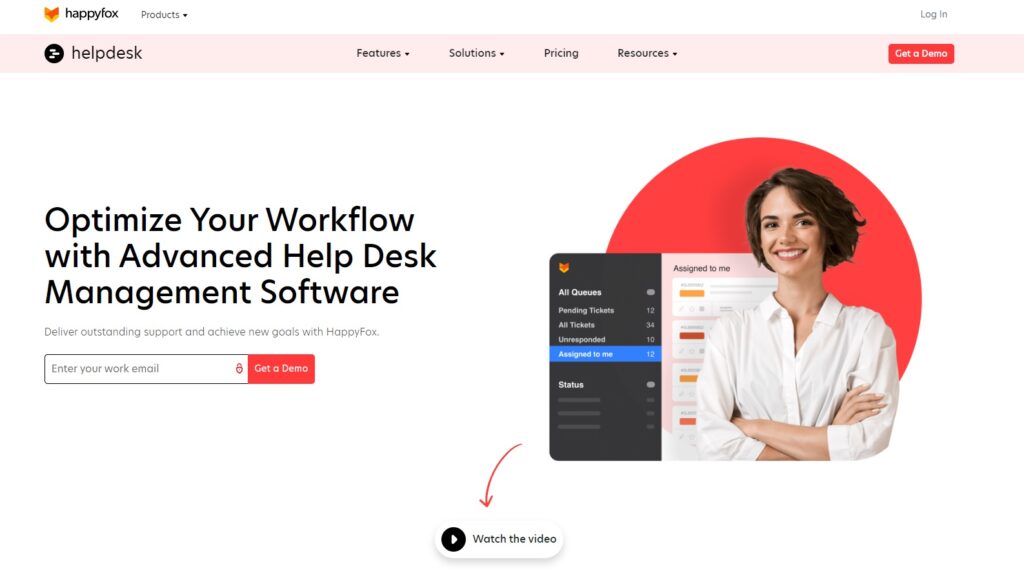Help Desk Software for Small Business: Streamlining Customer Support Efforts
Exploring the realm of Help Desk Software for Small Business, this introduction delves into the significance of efficient customer service tools tailored for small enterprises. From enhancing communication to managing customer inquiries, the journey into this topic promises insights and solutions that can elevate business operations.
Providing a comprehensive guide on the key features, benefits, and considerations when selecting help desk software, this discussion aims to equip small business owners with the necessary knowledge to make informed decisions for their customer support needs.
Introduction to Help Desk Software for Small Business
Help desk software plays a crucial role in helping small businesses effectively manage customer inquiries and provide timely support. It streamlines communication, enhances productivity, and improves customer satisfaction.
Key Features to Look for in Help Desk Software
- Ticketing System: A centralized system for tracking and managing customer queries efficiently.
- Automation: Automate repetitive tasks like ticket routing and responses to save time and improve efficiency.
- Knowledge Base: A self-service portal where customers can find answers to common queries without contacting support.
- Multi-channel Support: Ability to manage customer inquiries from various channels like email, chat, and social media.
- Reporting and Analytics: Track key metrics to monitor performance and identify areas for improvement.
Popular Help Desk Software Options for Small Businesses
- Zendesk: Known for its user-friendly interface and robust ticketing system, suitable for businesses of all sizes.
- Freshdesk: Offers a range of features including automation, multi-channel support, and reporting capabilities at an affordable price point.
- Zoho Desk: Ideal for small businesses looking for a customizable help desk solution with advanced features like AI-powered automation.
Benefits of Help Desk Software for Small Business
Help desk software offers numerous advantages for small businesses, ranging from improved customer support efficiency to enhanced communication and streamlined management of customer inquiries.
Improved Customer Support Efficiency
- Automated ticketing system: Help desk software allows for the automatic categorization and prioritization of customer inquiries, ensuring that urgent issues are addressed promptly.
- Centralized communication: By consolidating customer interactions in one platform, help desk software enables support agents to access relevant information quickly, leading to faster resolution times.
- Knowledge base integration: Small businesses can create a knowledge base within the help desk software, providing customers with self-service options and reducing the number of repetitive inquiries.
Enhanced Communication Within a Small Business
- Internal collaboration: Help desk software facilitates internal communication among team members, allowing for seamless collaboration on customer inquiries and issues.
- Real-time updates: Support agents can communicate with each other and stay informed about ongoing customer interactions through real-time updates and notifications within the software.
- Performance tracking: Managers can monitor team performance and identify areas for improvement through reporting and analytics features offered by help desk software.
Tracking and Managing Customer Inquiries
- History tracking: Help desk software maintains a record of all customer interactions, enabling support agents to refer back to previous conversations and provide personalized assistance.
- Issue escalation: The software allows for the escalation of complex issues to higher-level support staff, ensuring that all customer inquiries are addressed effectively.
- Customer satisfaction measurement: Small businesses can gather feedback and measure customer satisfaction through surveys and ratings integrated into the help desk software.
Features to Consider when Choosing Help Desk Software for Small Business

When selecting help desk software for your small business, it's crucial to consider key features that will streamline your customer support processes. Here are some important features to keep in mind:
Ticket Management
Effective ticket management is essential for organizing and prioritizing customer inquiries. Look for software that allows you to easily create, assign, and track tickets throughout their lifecycle. Automated ticket routing and escalation features can also help ensure timely resolution of customer issues.
Knowledge Base
A knowledge base is a valuable resource for both customers and support agents. Choose software that offers a robust knowledge base where you can store FAQs, troubleshooting guides, and other helpful resources
Reporting
Reporting capabilities are essential for evaluating the performance of your help desk team and identifying areas for improvement. Look for software that provides comprehensive reporting features, such as ticket resolution times, customer satisfaction ratings, and agent productivity metrics. Customizable reports can help you track key performance indicators specific to your business needs.
Compare Different Pricing Models Offered by Help Desk Software Providers
When evaluating help desk software options, it's important to consider the pricing models offered by different providers. Some common pricing models include subscription-based pricing, per-user pricing, and pay-per-ticket pricing. Compare the features included in each pricing tier and consider your budget and scalability needs before making a decision.
Provide Tips on How to Evaluate Scalability and Customization Options for Small Business Needs
Scalability and customization are key factors to consider when choosing help desk software for your small business. Here are some tips to help you evaluate these options:
- Scalability: Choose software that can grow with your business and accommodate increasing customer support needs. Look for features like multi-channel support, integration capabilities, and flexible user permissions to ensure scalability.
- Customization: Consider the level of customization offered by the software to tailor the help desk solution to your business requirements. Look for software that allows you to customize ticket forms, workflows, and reporting dashboards to match your unique processes.
Implementation and Integration of Help Desk Software for Small Business

Implementing and integrating help desk software for a small business is crucial for streamlining customer support processes and improving overall efficiency. Here are the key steps and best practices to consider:
Steps for Implementing Help Desk Software
- Assess Your Business Needs: Identify the specific requirements and goals you aim to achieve with the help desk software.
- Choose the Right Software: Research and select a help desk software solution that aligns with your business needs and budget.
- Customize and Configure: Tailor the software to meet your unique requirements by setting up workflows, ticket categories, and user permissions.
- Data Migration: Transfer existing customer data and support tickets to the new help desk software to ensure continuity.
- Training and Onboarding: Provide comprehensive training to employees on how to use the software effectively and efficiently.
- Testing and Feedback: Conduct thorough testing to identify any issues or areas for improvement before fully implementing the software.
Importance of Integrating Help Desk Software with Other Tools
Integrating help desk software with other tools like CRM systems can provide a holistic view of customer interactions and enhance the overall customer experience. By syncing data between platforms, businesses can ensure seamless communication and collaboration across departments, leading to improved customer satisfaction and retention.
Best Practices for Training Employees
- Provide Hands-On Training: Offer interactive training sessions to help employees familiarize themselves with the software's features and functionalities.
- Create User Guides: Develop detailed user guides and manuals to serve as reference materials for employees when using the help desk software.
- Offer Ongoing Support: Establish a support system to address any questions or issues that may arise during the transition to using the software.
- Encourage Feedback: Encourage employees to provide feedback on their experience with the software to identify areas for improvement and enhance user adoption.
Conclusive Thoughts
In conclusion, Help Desk Software for Small Business presents a vital investment for companies looking to streamline their customer support processes and enhance overall operational efficiency. By leveraging the right tools and practices, businesses can foster stronger relationships with their clients and improve internal communication dynamics.
FAQ Summary
What are the key features to look for in help desk software for small businesses?
Small businesses should prioritize features like ticket management, knowledge base integration, and robust reporting capabilities to effectively handle customer inquiries and support requests.
How can help desk software improve communication within small businesses?
By centralizing customer interactions, facilitating internal collaboration, and providing real-time updates on support tickets, help desk software plays a crucial role in enhancing communication channels within small business teams.
What is the significance of integrating help desk software with CRM systems?
Integrating help desk software with CRM systems enables businesses to consolidate customer data, streamline support processes, and deliver personalized experiences based on comprehensive customer insights.